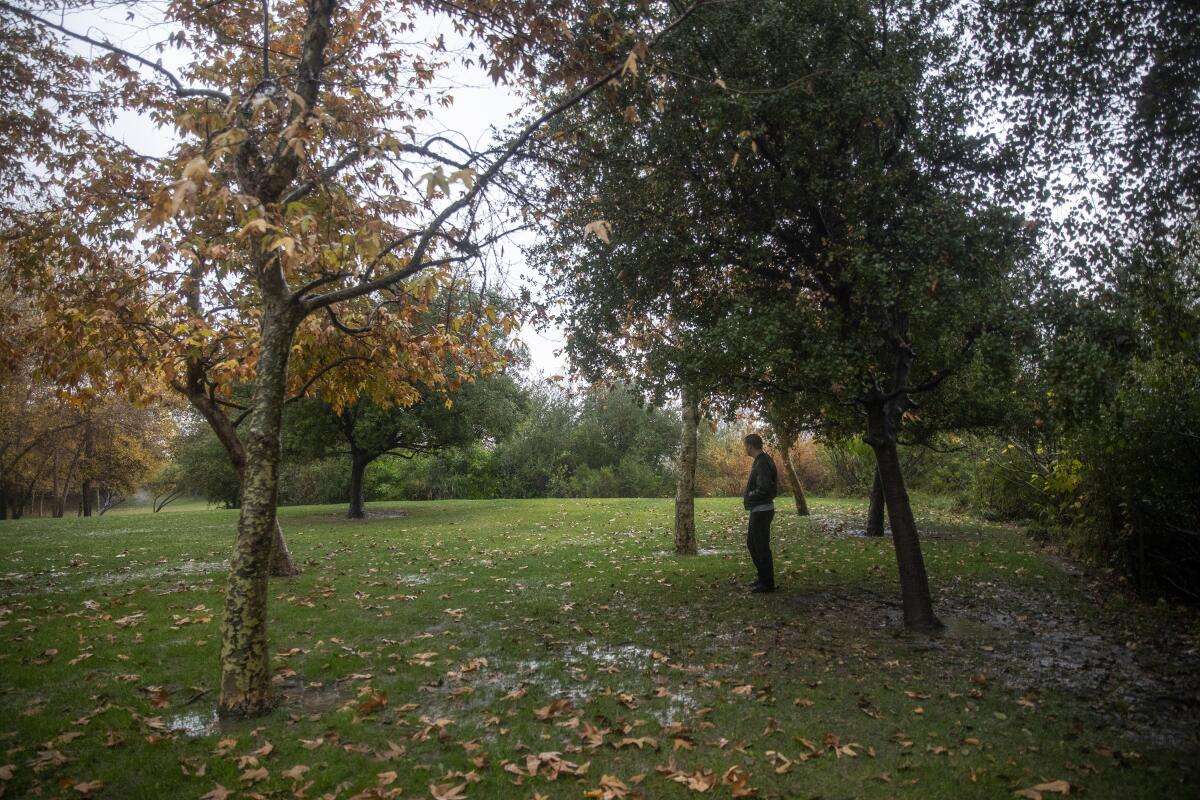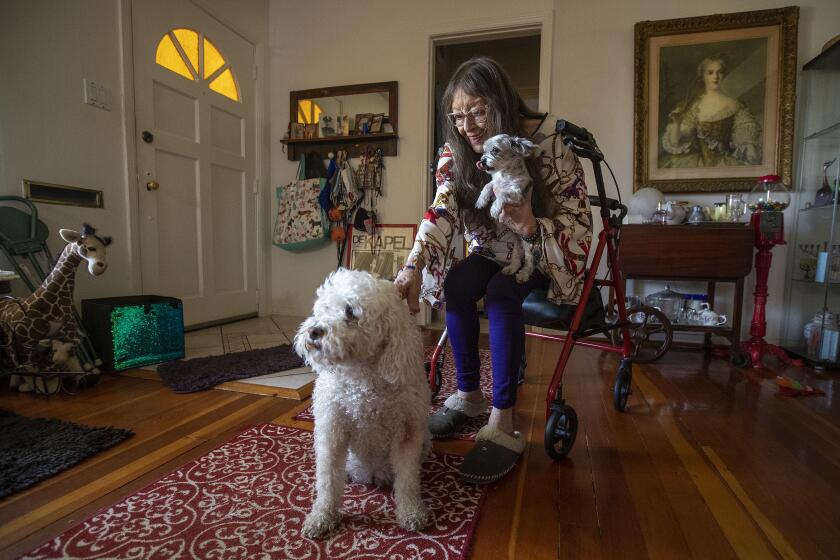Column: Why are men so lonely?

- Share via
Few men will admit it, but it’s true of most of them: They’re lonely.
The epidemic of loneliness is hitting men hardest. Men are less skilled than women at making friends. Young men, who tend to be more progressive and are presumably more comfortable with intimacy than their elders, are in fact the most isolated.
A 2023 State of American Men report from Equimundo found that two-thirds of surveyed men between ages 18 and 23 say “no one really knows me.” Since 1990, the share of men who lack a single close friend quintupled to 15%, according to a 2021 study by the Survey Center on American Life. It’s worse for unmarried men: One in five of them report that they have no close friends. And 1 in every 4 of those younger than 30 say they have no close friends.
Opinion Columnist
Jean Guerrero
Jean Guerrero is the author, most recently, of “Hatemonger: Stephen Miller, Donald Trump and the White Nationalist Agenda.”
Why are men, especially young men, so lonely? It’s an urgent question, as social isolation increases everything from extremism to early death. If traditional gender norms were solely to blame, Gen Zers wouldn’t be struggling more than older men. One 2020 survey of men ages 16-99 in 237 countries found that young men in individualistic cultures (those that place high value on self-reliance, with loose social networks) were the loneliest.
Screen time is part of the problem, of course. Nearly half of American men say their online lives are more rewarding than their offline lives. The virtual world, with pornography and ideological provocation, is facilitating men’s withdrawal. One in five Gen Z men trust the misogynist social media celebrity Andrew Tate.
But boys are retreating into the manosphere for a reason beyond the addictive nature of these technologies. They’re seeking purpose in a changing world, one in which women are outpacing them in school and at work. Boys with progressive views of manhood feel the least purpose in life, according to Equimundo’s survey.
Research suggests that boys wall themselves off from the world and their emotions when they feel punished for their vulnerability, including in progressive spaces where men’s complaints and struggles are ridiculed and seen as a distraction from those of women.
Richard V. Reeves, author of “Of Boys and Men” and president of the American Institute for Boys and Men, believes that mainstream scorn for male grievances can inspire boys and men to seek solace in media figures like Tate.
Adult centers run by Valley InterCommunity Council offer support for those in isolation. ‘If you know anybody that’s old like me, and, you know, needs a friend, I would love that’
Black and Latino boys and young men from low-income households are the loneliest and perhaps the most likely to be lured in by provocateurs. “They find answers online to the questions they would not even imagine raising around their own home,” Reeves told me. He argues for more compassion, saying there are “too many wagging fingers and not enough helping hands.”
Political hostility and culture wars have made it harder to be open. For men, who were socialized to silence loneliness and pain, the pressure to live behind a mask can be the most paralyzing.
It starts halfway through pre-K, according to Judy Chu, author of “When Boys Become Boys.” Many boys arrive in school full of tenderness toward others and with a capacity to shed tears. As they grow older and see the stigma of showing vulnerability, they learn to numb their emotions. This can create a lifelong difficulty in building and nurturing friendships. Even in many progressive environments, boys get the message to man up and shut up.
“We say we value emotional expressivity in men, but we tend to devalue men who express their emotions,” Chu told me. “So that kind of hypocrisy makes it really hard for boys and men to take that leap.”
She and other experts believe we all need to construct spaces where young men can safely express emotions — for instance, with boys’ groups at schools. Ashanti Branch, a youth mentor and founder of the California-based Ever Forward Club, encourages boys to reckon with their buried feelings. “They’re hungry to just be heard and seen and be themselves,” he told me.
In recent years, toxic masculinity has become a booming industry — filled with ridiculous figures and ridiculous sales pitches — and a political movement.
The rise of men’s support groups reflects this need. In L.A., Adam Dorsey, a 41-year-old yoga instructor, created a men’s group with a friend after they realized how helpful it was to work out and talk during the pandemic. In the meetings, the men sit in a circle and share their struggles after some exercise and breathwork. Dorsey encourages them to ask each other questions rather than give advice. “We are here to bridge the polarity of the masculine and feminine on the planet,” he told me.
Feminists’ suspicion of all-male spaces and male bonding rituals makes sense given their sexist history. But today, these spaces can make men stronger allies of women. When men support each other, it relieves women of the burden of their emotional labor. And it can teach men reciprocity and listening skills.
Because men feel more comfortable making friends and catching up when there’s an event such as watching sports or lifting weights, it can be helpful for them to join a men’s group or pick up new hobbies with weekly meet-ups.
Bumble BFF, the dating app’s friendly spinoff, can also facilitate friendships. But many men approach it with homophobic biases, since our culture tends to sexualize male vulnerability. Reddit threads are full of unsubstantiated claims that the app is overrun with “undercover gays.”
Given these inhibitions, it’s no surprise that just 1 in 5 men have received emotional support from a friend in the past week, compared with 41% of women. But men can relearn how to be close to others, particularly with some empathy and help from all of us.
More to Read
A cure for the common opinion
Get thought-provoking perspectives with our weekly newsletter.
You may occasionally receive promotional content from the Los Angeles Times.














